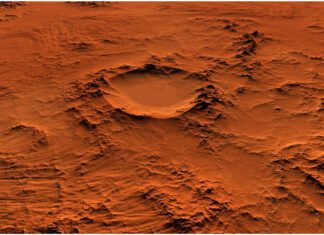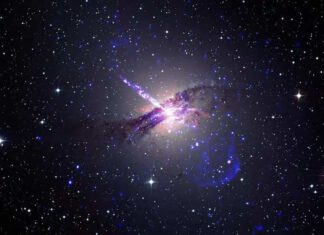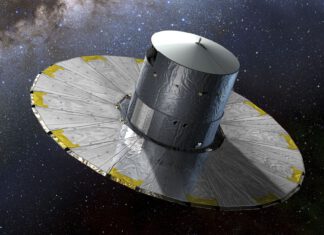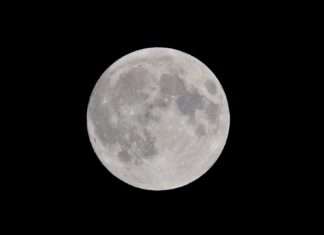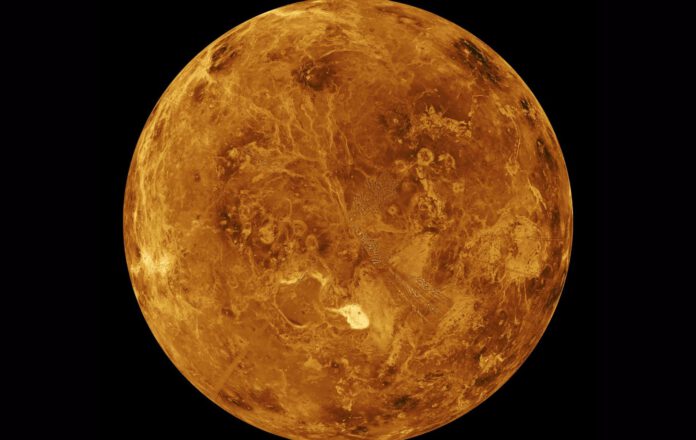
A Cosmos Mystery: Why Is Venus So Dry?
In many ways, Venus is akin to Earth: possessing similar size and mass. Yet, there’s a perplexing discrepancy: Venus holds 100,000 times less water than our planet. Researchers think they might now be able to explain this anomaly.
A Comparison: Earth and Venus
From afar, one could mistake Earth and Venus for siblings. They share characteristics in size and mass. However, up close, the differences are striking. Earth enjoys temperate climates, an oxygen-abundant atmosphere, and oceans filled with liquid water. In contrast, Venus boasts a surface temperature of a whopping 474 degrees Celsius, a much thicker, virtually CO2 dominate atmosphere, and no surface waters.
Venus: The Ancient Past
Billions of years ago, Venus was believed to possess approximately the same amount of water as Earth. Much of that water, however, was lost when the concentration of carbon dioxide in Venus’ atmosphere escalated, triggering an unmatched greenhouse effect within our solar system. This resulted in skyrocketing surface temperatures which caused the liquid water to evaporate, eventually disappearing into space.
The Current Dry State of Venus
Today, Venus contains only a minuscule amount of water. If you were to spread all the water Venus has – including that present in its atmosphere – across its entirety, the planet would be covered by only a 3 cm layer. To put that into perspective, if we dispersed all the water on Earth across its land surfaces, a three-kilometre-deep layer of water would cover the earth.
Why Is Venus So Dry?
The severe water scarcity on Venus can partially be attributed to the runaway greenhouse effect, but it doesn’t entirely justify Venus’ relative dryness. Even if you were to account for that greenhouse effect, Venus should theoretically hold more water than it currently does. Researcher Michael Chaffin uses a simple analogy to explain this, comparing it to discarding all the water in a water bottle – there would still be a few droplets left at the bottom. However, Venus appears to have even lost most of those ‘always remaining droplets’. So, what’s going on here?
The Role of HCO+
Chaffin and his colleagues suggest that Venus has, and continues to, lose additional water through a process in its atmosphere involving a molecule called HCO+. This is an ion composed of one atom each of hydrogen, carbon, and oxygen.
How does HCO+ work?
According to the researchers, HCO+ is continually produced high in Venus’s atmosphere. However, these produced ions are short-lived; they collide with free-floating electrons in the atmosphere, instigating a recombination process that releases hydrogen atoms – some of which may eventually escape into space. This process could explain how Venus continues to lose extra water.
Detecting HCO+
While this idea sounds plausible, there’s a catch. For this hypothesis to work, substantial amounts of HCO+ are needed. Interestingly, HCO+ has never been observed in Venus’s atmosphere yet. However, this doesn’t discount its existence, researchers argue. They emphasize the limited number of missions to Venus and that those missions lacked the equipment necessary to detect HCO+. In essence, the presence of large volumes of HCO+ in Venus’s atmosphere still can’t be ruled out. Chaffin states, one of the most surprising conclusions from this study is that HCO+ should logically be one of the most abundant ions in Venus’s atmosphere.
Future Mission to Venus
Whether the theory proposed by Chaffin and his team holds water (no pun intended) will be determined in future missions to Venus. The good news is that there is increasing attention and readiness to launch probes to explore Venus. The bad news is that there’s no current mission capable of detecting HCO+. The planned DAVINCI mission, set for launch in 2032, although focused on studying Venus’s atmosphere, lacks the tools necessary to discern HCO+. Thus, researchers can only hope that later missions incorporate such tools.
Comprehending Venus’s Drying Phenomenon
Researcher Eryn Cangi believes it’s essential to understand how Venus’s water disappeared and continues to do so. This insight is not only crucial to our understanding of Venus but also shapes our perception of extraterrestrial planets and our quest for life. “Water is very important for life,” Cangi noted. “We need to better understand the conditions that enable the presence of liquid water in the universe and the circumstances that resulted in Venus becoming extremely dry.”







